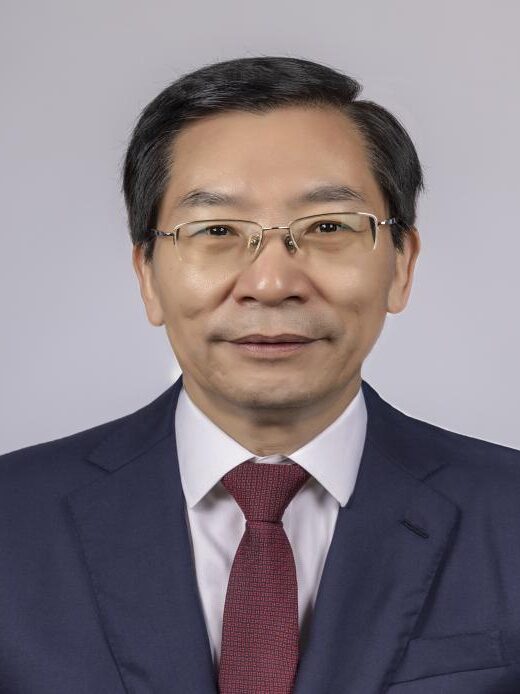President Yaoxian Wang

Dr. Yaoxian Wang, MD, is a second-level professor, chief physician, doctoral supervisor, and the first recipient of the Qi Huang Scholar title. He currently serves as the President of Henan University of Chinese Medicine, the Director of Henan Academy of Chinese Medicine, and the Director of the Institute of Nephrology at Beijing University of Chinese Medicine. Additionally, he holds honorary and vice-presidential positions in various prestigious academic associations, including the Honorary Director of the Nephrology Branch of the Chinese Association of Traditional Chinese Medicine, Honorary President of the Nephrology Branch of the Chinese Ethnic Medicine Association, and Vice President of the Nephrology Branch of the World Federation of Chinese Medicine Societies.
Dr. Wang’s primary research focuses on TCM approaches to anti-renal fibrosis. In the treatment of chronic kidney disease, he proposed the theory of “treatment based on syndrome differentiation by pathogenesis” (辨机论治), which supplements and enhances the traditional theory of “treatment based on syndrome differentiation” (辨证论治). In the field of diabetic nephropathy, he innovatively introduced the “three states and four stages” theory of diabetic nephropathy related to the kidney collateral network (肾络癥瘕聚散消长), establishing a comprehensive theoretical system for its treatment through principles, methods, formulas, and medicines.
Topic:Treating Kidney Diseases with Classical Prescriptions Based on Pathogenesis Differentiation
The lecture first explained what “bian ji lun zhi” (辨机论治) is and the commonly used modes of reasoning within it. It elaborated on the different types of diseases and their various stages from both macro and micro perspectives, discussed the different types of pathogenesis and their varying weights, and how prescriptions are formulated based on the combination of pathogenesis and weight. By comparing “bian ji lun zhi” with “bian zheng lun zhi” (辨证论治), the lecture aimed to break the rigid thinking associated with “bian zheng lun zhi,” restore the true essence of traditional Chinese medicine (TCM), enrich treatment ideas, grasp the key aspects of diseases, and move towards precision in TCM treatment through theoretical and technological innovation.
Secondly, the lecture discussed the pathogenesis thought in “Shang Han Lun” (伤寒论, Treatise on Cold Damage Disorders). The prescriptions and medication in “Shang Han Lun” are meticulous in terms of adjustments, dosages, and proportions. The reason that classical prescriptions (经方) are few in number but highly effective and potent, and can achieve the same treatment for different diseases or different treatments for the same disease, lies in pathogenesis. Pathogenesis determines medication; recognizing the disease and understanding the pathogenesis leads to effective treatment. The lecture also provided four categories of applications of classical prescriptions in kidney diseases and how to flexibly use classical and contemporary prescriptions closely tied to pathogenesis.
Finally, it pointed out that the development of new Chinese medicines relies on a clear understanding of pathogenesis. It emphasized that new drug development depends on innovations in pathogenesis theory, explaining the mechanisms of drug action, and under the guidance of pathogenesis theory, it helps elucidate the molecular biological mechanisms of disease onset, revealing the intrinsic patterns of multi-component interventions in diseases.
In summary, “bian ji lun zhi” restores the original true nature of diagnosing diseases in TCM. Pathogenesis theory reflects the essence and patterns of diseases. Treatment methods established based on pathogenesis theory are more targeted. The diagnostic model in TCM established by pathogenesis theory and the development of new Chinese medicines under the guidance of pathogenesis theory are more conducive to improving clinical efficacy and are easier to promote.